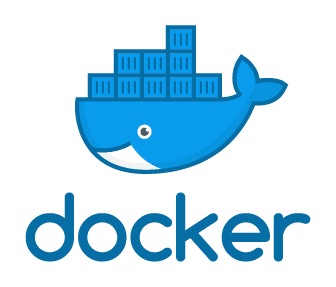Tag: Tools
In our Tools section, we take a look at all the various tools our admins use in their daily lives to maintain the integrity of our servers.
How To Install Git on Ubuntu 16.04 LTS
Git is one of the most popular tools used as a distributed version control system (VCS). Git is commonly used for source code management (SCM) and has become more used than old VCS systems like SVN. In this article, we'll show you how to install Git on your Ubuntu 16.04 cloud dedicated server.
How to Install INXI on Ubuntu 18.04
INXI is one of the best tools that offer a straightforward and comprehensive method for obtaining a wealth of information about a server with a single command.
Docker For Beginners
What is Docker?

Docker is a containerization software that is used for automating the deployment and management of applications within an isolated environment. This software allows us to "pack" and ship an application, along with all of its needed files, libraries, and dependencies, into a "docker container". That container can then be easily ported to any Linux system that contain cgroups support within the kernel, and provides a container management environment. Docker is one of several containerization implementations (not to be confused with virtualization) based on this cgroups mechanisms built into the Linux kernel.
The Best DevOps Tools for Infrastructure Automation
Today, DevOps teams try to utilize automation as much as possible. This is to cut down on the sheer number of repeatable processes to limit man-hours worked, throttle development efforts, and to reduce the possibility of errors. This is also a business necessity to reduce overhead costs, increase the speed of the CI/CD process and increase customer satisfaction. There are multiple individual areas that need to be automated to have a fully autonomous infrastructure. Luckily, there are various tools we can take advantage of to help us automate our infrastructure and make sure we have well-developed DevOps processes. In this article we will go over the several of the best DevOps tools for our infrastructure systems.
How to Install Docker on CentOS 8
What is Docker?
Before we begin, let's describe what Docker is. Docker is a set of virtualization tools that allows us to create, test, and deploy containerized applications quickly and easily on a dedicated server. It has become very popular and used almost everywhere in our daily lives. Thanks to containerization, we can quickly launch applications on different private cloud hosting platforms utilizing small bundles which contain all the needed packages, libraries and configuration file to run an application. These docker packages communicate via established network channels.
Installing Jenkins on Ubuntu 16.04
What Is Jenkins?
Jenkins is an open source automation server software developed in Java. It allows developers to integrate CI/CD (Continuous Integration/Continuous Delivery) pipelines within their organization that ease and automate workflows. It has an extensive help community, supports over 1000 plugins, allows users the ability to automate almost any task and, it saves significant time that can be better utilized addressing other issues.
The Benefits Of Containerization
Fast, Portable and Secure.
Containerization is a technology that is taking the IT world by storm! It’s no surprise considering the considerable benefits of shifting to a container based deployment.
What’s My DNS?
What is DNS?
If you are new to web hosting, you may have heard the term DNS, but you might not be sure what it means or how it is essential to you. DNS is short for Domain Name System, and it is the process by which the whole Internet organizes and easier way for humans to reach websites.
Why Is Most of My Memory Being Used?
Often we hear a lot of customers asking why, when their server is largely idle, much of their RAM appears to be in use.
Remote MySQL connections are disabled by default in cPanel servers because they are considered a potential security threat. Using the tools in the Web Host Manager (WHM) and the domain-level cPanel interface (usually http://domainname.com/cpanel) remote hosts can be added which the server allows connecting to the MySQL service.
Our Sales and Support teams are available 24 hours by phone or e-mail to assist.

